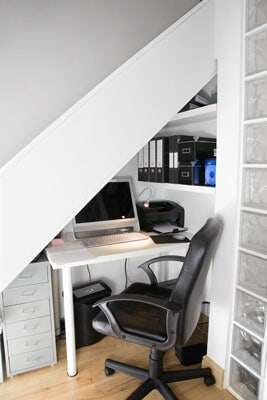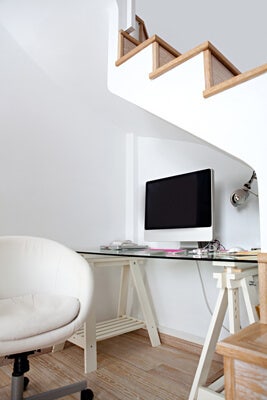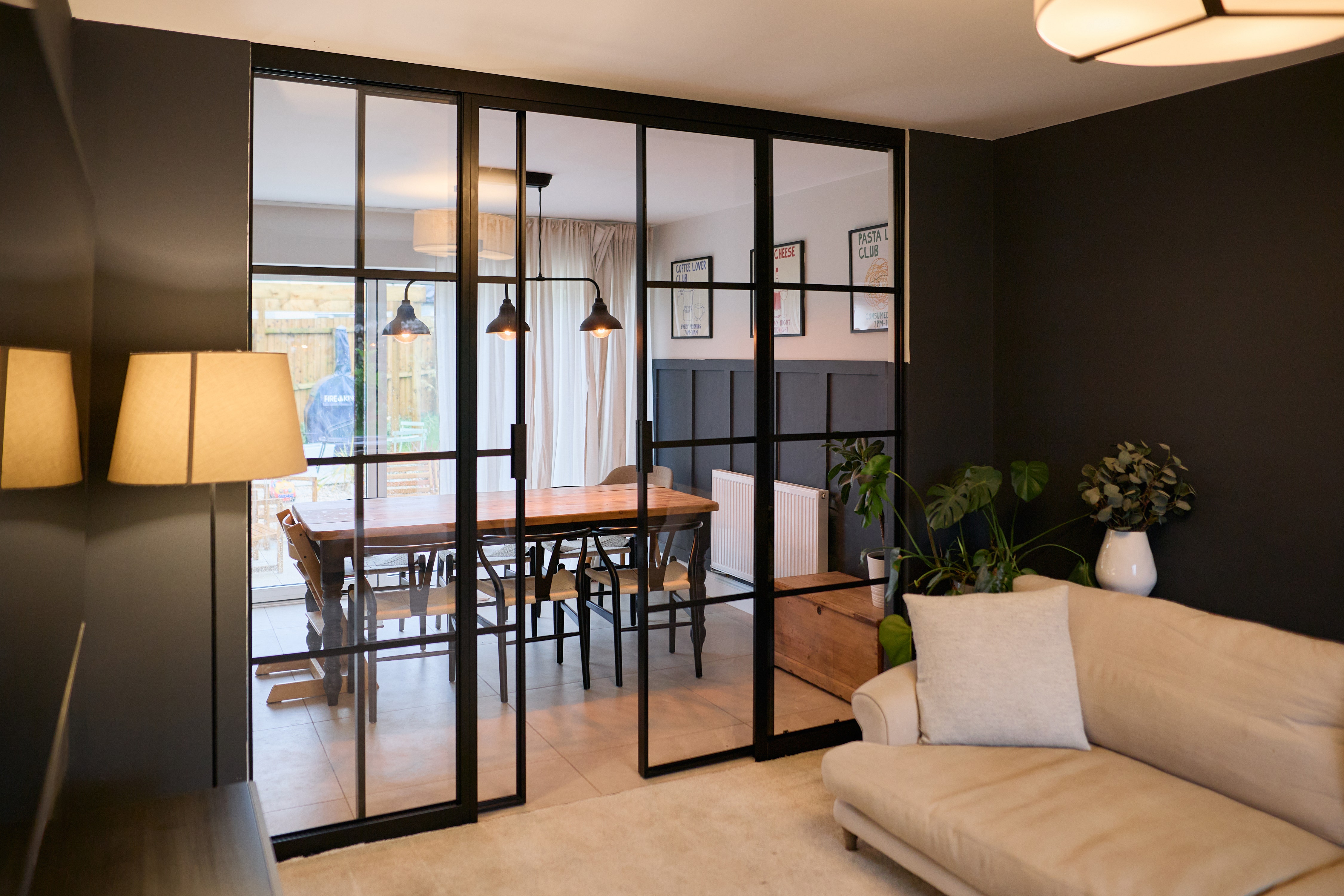Guide To Improving Your Home Office Space
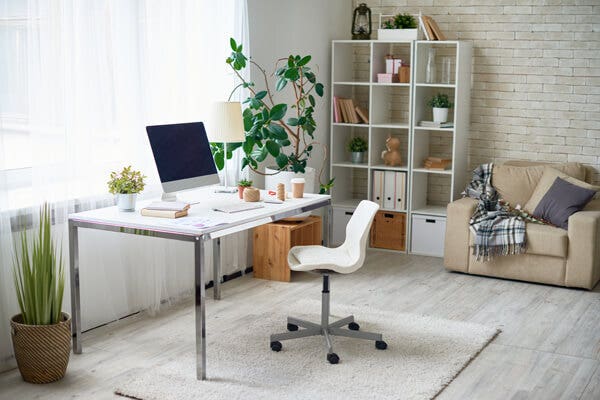
By Larry Bohan on 21 May
2020
While some of the
UK’s workforce will have already been well accustomed to working from home pre-Covid-19, the current pandemic has forced hundreds of thousands of first time remote workers to set up office in their bedrooms, kitchens and living rooms.
Unlike the seasoned WFHers with their work stations all ready to go, the suddenness of the current situation has left many people sitting with questionable postures
on their dining room chair at whatever four-legged surface happens
to be free.
Trying to get your remote set-up
the best it can be now and moving forward
has become vitally important, with
proper
home offices
now as
desirable
as a new kitchen or
bathroom.
Relaxed and comfortable, this space should be one that maintains the boundaries between work and home life with everything you need for your job in the places you need them. Get it right and you should see and feel immediate improvements in comfort and
productivity.
Making an Instant Change
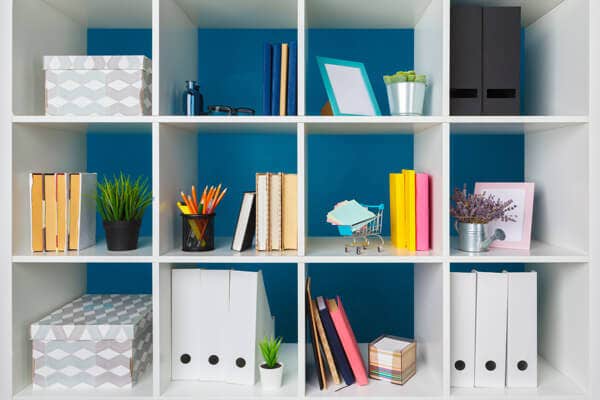
Extension and renovation projects might be limited at the moment, but
this does not mean
impactful changes cannot be made as we're
forced to be more creative with the space at our disposal
in designing a unique, purpose built work area that ticks all the boxes.
Stylish Space Saving
Two of the biggest
challenges remote workers have with their
work stations are space and comfort.
Although the opposite can be true for some people, the ‘cluttered desk, cluttered mind’ cliche can ring true and
create
a feeling of unproductiveness.
Regardless of whether you are the clean or tidy desk type, wall storage units
can offer the perfect solution for housing
computer equipment and paperwork where it can be seen and easily accessed instead of sprawled across the desk or bundled in a drawer to be forgotten about.
It can also be used for shelving books and ornaments to help create a space you want to be in rather than have to be in.
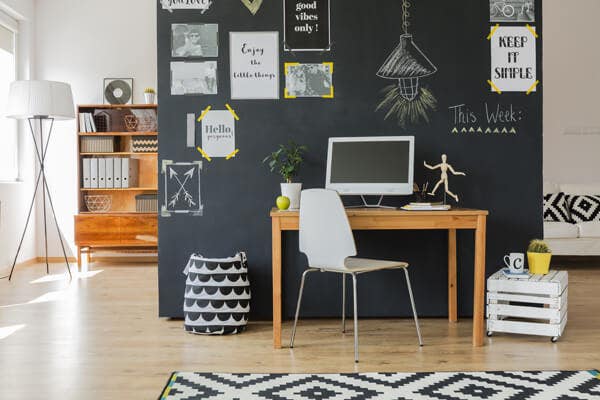
For work that requires a more visual approach, a wall planner or chalkboard can be used for
jotting down to-do lists, motivation, ensuring you don’t miss appointments, and again, keeping a clearer desk space.
An ergonomically designed chair can have a massive impact. Make sure its comfortable and supportive, and can be adjusted to different heights so that your screen is in line with your eye gaze.
The more comfortable the chair, the happier you’ll be to put in the hours at your desk.
Think Outside The Box
If you're struggling with distractions in the kitchen or lounge, look in other parts of the house
for a more independent and secluded spot, for example,
under the staircase.
You don’t need a great deal of area beneath the stairs to incorporate a desk, small chair and some
built-in shelves.
It is essential, however,
to factor natural lighting into any plans. Exposure to daylight has been proven to do wonders for mental and physical wellbeing. More on these benefits and some tips on brightening a work space can be found in our blog
How To Make The Most Of Natural Daylight At Home.
If the sun and its glare on your computer screen is becoming a hinderance, make sure
your desk is facing out towards the window if possible. This will also encourage
you to pause and look outside into the distance after long periods staring at a screen.
If you can't do some work
outside or don't have a garden, bring the indoors in and clean the air
by adding a plant or two to your work top, along with a space-saving clip on desk lamp for when the evenings start getting darker and artificial light is required.
Adding or Converting a
Room
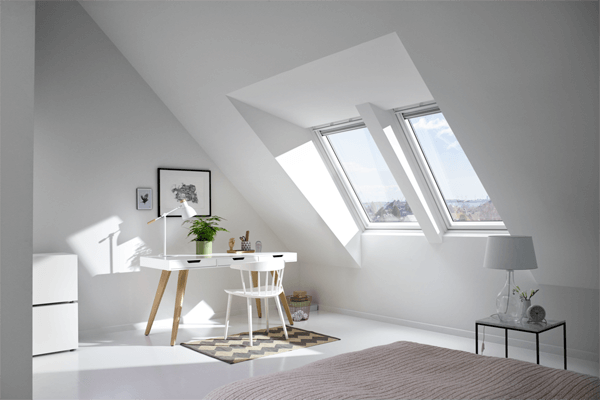
With working from home set to become more of a norm looking
to the future, now could be the perfect time to consider planning for
a brand new office/study in your home to truly maximise your WFH potential.
Home Office Loft Conversion
Loft conversions are the most common route to the ideal home office. Lots of houses
already have empty or wastefully used roof spaces that are structurally sound with sufficient headroom to be converted into a
habitable room, or are at least not far off being so with a bit of work.
Lofts come in all shapes and sizes,
some more than complex than others,
but this can be turned into an advantage with a bit of thoughtful
design and the right fitted furniture.
For storage, use all of the space available to you, such as in the
eaves. These can be ideal
spot for both a wall cabinet or book shelves.

Roof window conversions are rightly regarded as the cheapest type of loft conversion and
often do
not require planning permission.
If you'd love
to be able to step away from your desk, grab a coffee and look out at your surroundings, top hung windows
are the perfect choice in that they
open
all the way out for
uninterrupted views.
If you're not sure if your loft can be converted,
what building regulations apply or how many windows you will need, see our Essential Checklist for a Successful Loft Conversion.
Create an Outdoor Haven
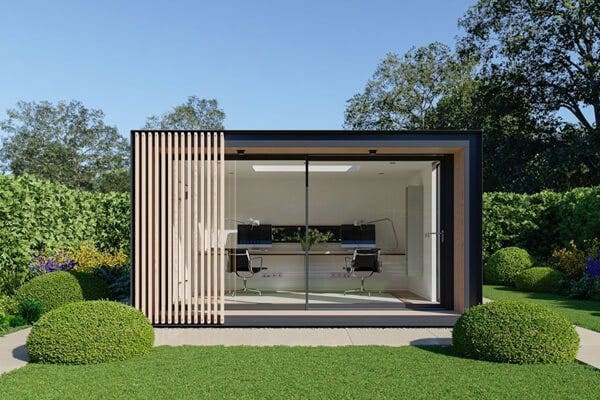
If you don’t have an extra room above you for your new office, think about where else you might be able to add a room that can be used exclusively for work.
Two popular options are garden offices and garage conversions.
As with lofts,
garage conversions can often be done without
planning permission and can be fitted out with insulation, power sockets, a comfy carpet and rooflights to create a comfortable and healthy working environment.
You might want to consider extending your home’s air conditioning system and upgrading your Wi-Fi if you can. The same applies to garden offices.
Whether converted from a shed or built new, garden offices can provide an idyllic outdoor work retreat in an environment of your
choosing. From the colours of the walls to bringing in a fridge and coffee machine, garden offices provide complete autonomy from the rest of the house while still being close enough to enjoy its home comforts.
Outdoor offices can be professional,
spacious and completely private. This is perfect
for holding meetings and seeing clients
within easy access to the garden and the benefits of being surrounded by daylight and nature.
 Sterlingbuild
Sterlingbuild


